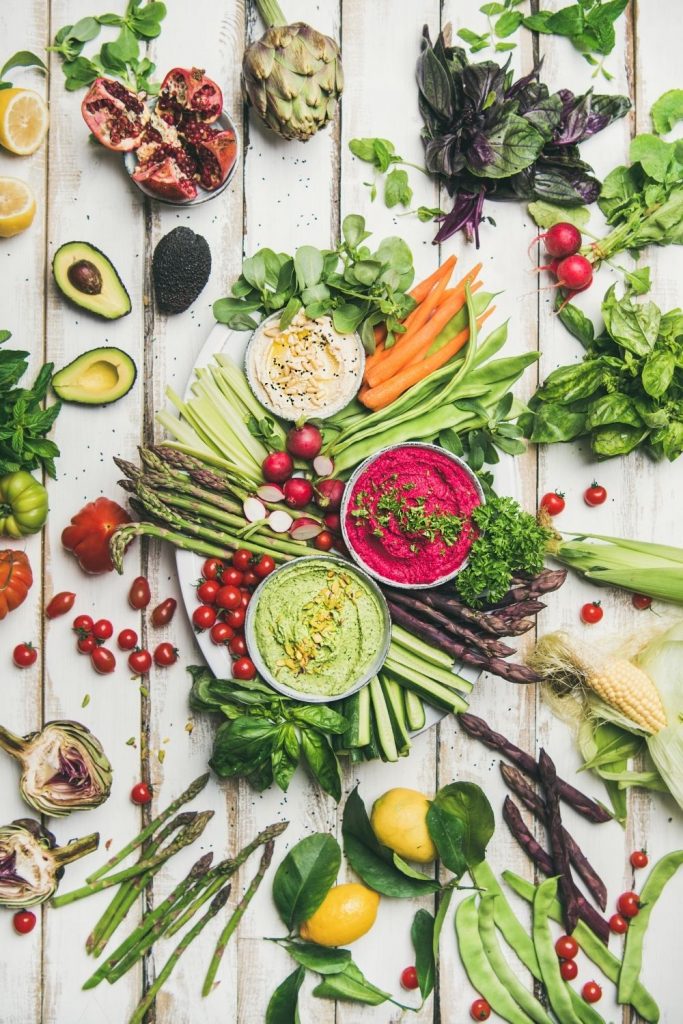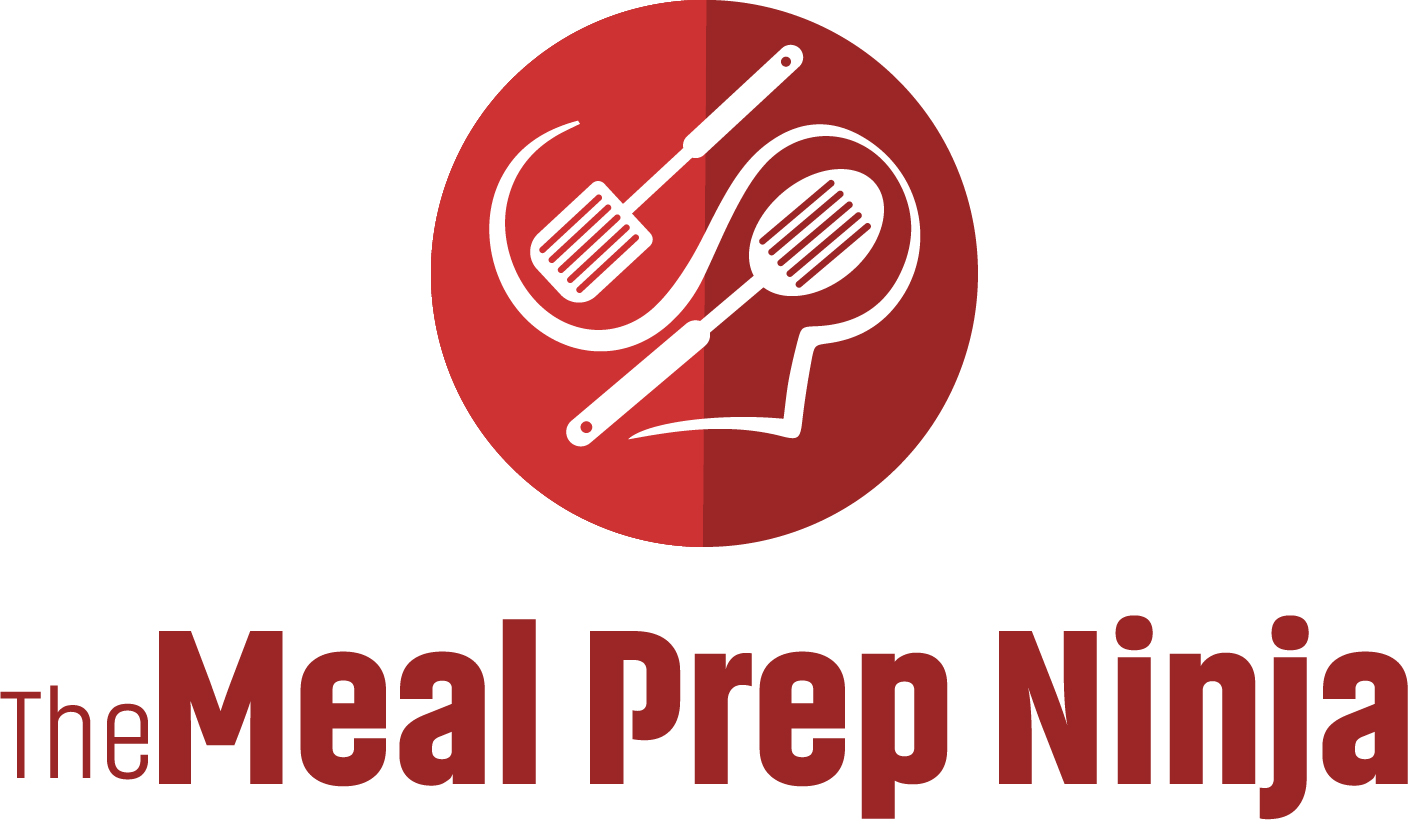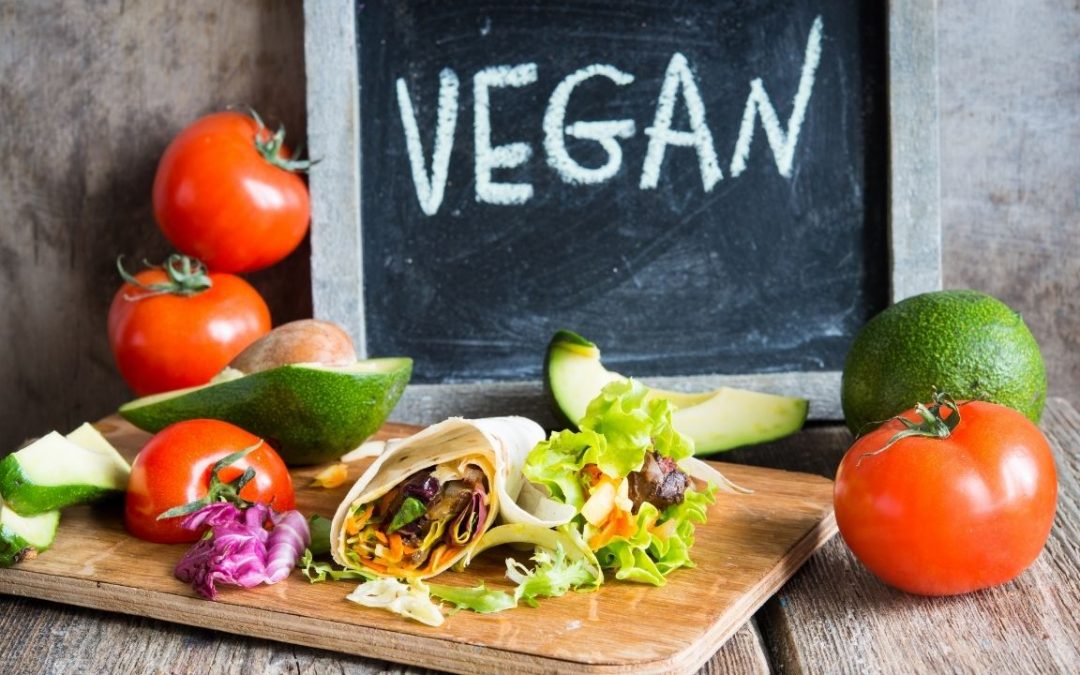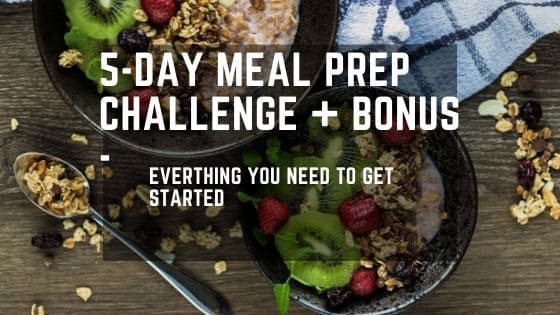Last Updated on February 18, 2021 by TheMealPrepNinja
How To Meal Prep For Vegans
We are not in a diet war, but rather, we’re looking at what works out best for you. There still is a protracted battle between the plant-based and meat-based fanatics. We just don’t know where to draw the line. We need to understand that people are diverse, and what works out or one may not necessarily work out for the other. This time around, we take a keen look at how to meal prep for vegans.
Prepping up a meal after a long day’s work amid hunger pangs can take the wind out of you. You incessantly flip open the fridge’s door for the next 15 minutes, trying to figure out what to eat until you give it all up and order takeout. Well, trying to whip up a vegan-based meal makes it even more challenging since you don’t have many options. You just can’t flip open the fridge and take out yesterday’s leftover or that extra chicken burger now, can you?
We typically tend to think that vegans have limited options compared to other forms of diets.
Not to worry; let’s take a look into vegan meal prep, what it’s all about and how we can easily pull it off.
But First….
Let’s put something to rest, shall we?
Is it practically possible to get all my nutritional needs based on a vegan diet? The answer is an emphatic YES! Research clearly shows that alternative sources of nutrients( sorry, meat lovers) exist. Though it’s fine eating beef, it’s been proven that adopting a plant-based diet reduces your risk of obesity and other lifestyle diseases. You further reduce your ecological footprint. It means you aid both the environment and your body.
Excited? Well then. Let’s jump right into the meal prep vegan world to find out what it’s all about.
What’s a Vegan Meal Prep?
It’s the dedication of time out of your ordinary schedule to batch- cook your healthy plant-based meals or portions for the week ahead. From blending healthy vegan smoothies and sauces, weighing and measuring, to peeling or chopping veggies, prepping can include both individual portions or cooking large batches to be eaten for a few days.
Tips on How to Meal Prep For Vegans
Since everyone has different taste, preferences, and nutritional needs, the following tips below will help you adjust your vegan meal prep accordingly to your needs;
- Meal planning is an essential component that goes hand-in-hand with vegan meal prep. Have an idea or envision what you’d want to eat for the weak. Winging it at the grocery store won’t cut it.
- Choose the target meal of the day that you are prepping for; either breakfast, lunch, or dinner. This way, you’ll get to address your pain points and mealtime needs.
- Plan or set aside your meal prep days. It’ll help in making a hectic and stressful week less demanding. Take a day or two in your week to develop vegan options that can be turned into delicious meals in a jiffy with effortless effort.
- Starting out with easy meals/foods. For the newbie, this isn’t the time to start out with complex meals. You could incorporate a handful of nuts as snacks or just your ordinary veggies and potatoes.
- Keep things fun. A veggie diet may seem bland, but do you know how many types of legumes and grains there are? A world of veggie food items exists for you to find out.
- Get support. Living in a meat-eating world ain’t easy. Look for friends or family on the vegan meal prep journey to help you out. Seeking out people who’ve been on the same journey can be tremendously helpful.
- Don’t over prep. You probably end up throwing away extra food if you don’t consume it in time. You may also end up overeating due to excess food in the fridge, which may rid you of some flexibility during the week.
- Make use of frozen products. They are usually cheap, a great buy, and packs quite a lot of nutrients. They take less time to prepare ( no trimming or chopping) and stay longer in the fridge.
- Store your veggies separately. Don’t make the common mistake of storing your veggie salad with fresh greens to avoid a soggy mess.
Who’s a Vegan Meal Prep For?
Vegan meal prep is for those who specifically:
- Are full-time workers who need their healthy meals-to-go and on the go.
- Parents who want their school-going kids to indulge in healthy vegan options
- Vegan students who need to power up in between classes and don’t have access to a proper, functioning kitchen
- Plant-based beginners who are not used to prepping their own food
And generally;
- People who are on a weight loss journey and strive to cut off animal by-products.
- Health fanatics who are budget-conscious and looking to reduce their spending
- Health enthusiasts who backslide or fall off the wagon due to lack of motivation or inconveniences.
However, in as much as we try to pull off a vegan meal prep, we need to acknowledge that it’s not for everyone. Some people opt to decide what to eat on a day-to-day basis. Others simply enjoy their food cooked fresh every time.
Vegan meal prep Equipment
Vegan meal prep is as conventional as typical meal prep. You can make vegan meal prep work for you with just the regular or conventional kitchenware at home. To give you a rough idea of how to streamline your vegan meal prep, the following necessary tools are a must-have;

- Baking sheets
- Parchment paper
- Blender- for smoothies and sauces
- Knives
- Cutting board
- Food processor
- Instant pot and
- Non-stick pan
The last three are regarded as nice-to-have items, but you can still make your general vegan meal plan work in their absence.
Food Storage Equipment
As with any meal prep, vegan meal prep isn’t exceptional since it uses the typical food storage containers as below;
- Ziploc-style food bags: These can be used for storage in the freezer section and recycled as many times as possible.
- Lunch-boxes or bento-style boxes– excellent for storing separate foods to avoid sogginess or where you’d like meals to be separate
- Tupperware or plastic food containers: These are your basic or conventional storage containers. Make sure you go for BPA, dishwasher, or microwave-safe containers.
- Glass boxes/Jars: For those who prefer glass jars over boxes.
You can get more information about meal prep containers here.
Benefits: What a Vegan Meal Prep Plan Offers
People always think that vegan food is difficult to find, hard to cook, and quite expensive. Nothing could be further from the truth. Just like you, I was duped too (you’ll get to understand later). FAO estimates that livestock accounts for 40% of the global revenue and ensures around 1.3 billion people’s survival. A slight reduction in beef consumption would lead to greedy corporations losing billions of dollars.
Epidemiologists agree that diet-rich animal protein meals pose a greater risk of bringing about various ailments such as cardiovascular, obesity, diabetes, and cancer ailments.
Open your eyes! We are slowly killing ourselves!
Fortunately, animal alternative-based diets are rapidly increasing, and there’s never been a better time to kick off a vegan-based diet. Below are just a few advantages;
A happy mind and healthy body
A vegan diet is a type of mindful eating that entails listening to your body’s signal. Just as your body signals that your tummy is full, it sends signals of the kind of food it receives. A plant-based diet is packed with antioxidants, nutrients, and minerals that your body requires. A vegan meal comes packed with nutrients proven to;
- Reduce migraines, cataracts, blood sugars, diabetes, heart ailments, and cholesterol.
- Improving kidney functions
- Improved balance hormones and moods.
Keeps you fuller for longer
Many are guilty of scarfing down animal-processed products or processed foods when hunger pangs strike. Though it serves the purpose, you’ll only raid the fridge an hour later. Plant-based and fortified foods such as blueberries, whole grain, and veggies work best. They make you feel fuller for longer, focusing your time on essential activities.
Other benefits include; serving as a protein powerhouse, having creative recipes with colorful plates( talk about tasting the rainbow), and having more options.
Veganism also comes with its fair share of drawbacks such as:
- Development of specific macronutrient deficiencies such as vitamin D, omega-3 fatty acids, zinc, and calcium. Ensure that you consume enough of these
- Regularly monitor your iron levels. Two types of iron exist- heme and non-heme iron. Vegans miss out on heme iron, present in animals by-products. Non-heme iron in vegan diets present in veggies and fruits sadly doesn’t get readily absorbed by the body as heme iron, leading to lower iron levels and a feeling of lethargy.
- High risk of vitamin B-12 deficiency causing irreversible damage such as dementia and loss of balance when left untreated.
Final Thoughts
Ethics, environmental factors, better health, or sustainability– the conscious choice of embracing a vegan diet is absolutely personal. How to meal prep for vegans comes packed with proven and actionable strategies, making vegan meal prep a breeze. To truly reap from a vegan lifestyle, one should wholly embrace being an ardent plant-eater and determine whether it’s sustainable in the long term. Moreover, just like the regular meal prep, remember that vegan meal prep is all about portion control, mindful eating, and balance. When well-executed, the above tips and strategies will definitely be a breath of fresh air in your vegan meal prep journey. Now it’s time to meal prep for Vegans.

Jim Lopez, the founder and editor of The Meal Prep Ninja, shares his journey from a passionate bodybuilder and fitness enthusiast to a certified nutrition coach. Certified by Precision Nutrition, Jim aims to empower others with knowledge on meal prep and nutrition, offering resources for busy individuals to enjoy low-calorie, tasty foods. His blog is a community for sharing healthy eating habits and meal prep recipes



